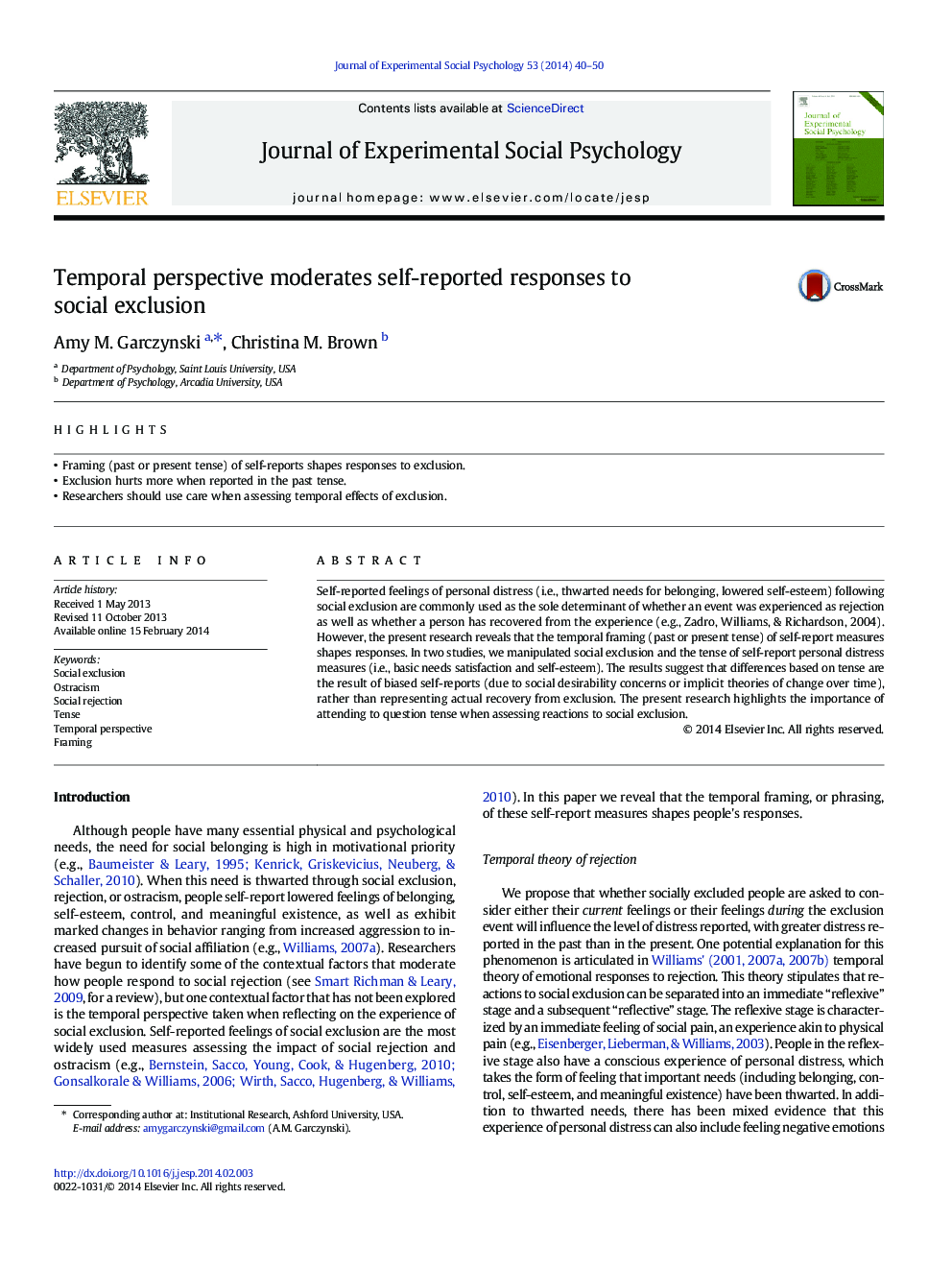| Article ID | Journal | Published Year | Pages | File Type |
|---|---|---|---|---|
| 947825 | Journal of Experimental Social Psychology | 2014 | 11 Pages |
•Framing (past or present tense) of self-reports shapes responses to exclusion.•Exclusion hurts more when reported in the past tense.•Researchers should use care when assessing temporal effects of exclusion.
Self-reported feelings of personal distress (i.e., thwarted needs for belonging, lowered self-esteem) following social exclusion are commonly used as the sole determinant of whether an event was experienced as rejection as well as whether a person has recovered from the experience (e.g., Zadro, Williams, & Richardson, 2004). However, the present research reveals that the temporal framing (past or present tense) of self-report measures shapes responses. In two studies, we manipulated social exclusion and the tense of self-report personal distress measures (i.e., basic needs satisfaction and self-esteem). The results suggest that differences based on tense are the result of biased self-reports (due to social desirability concerns or implicit theories of change over time), rather than representing actual recovery from exclusion. The present research highlights the importance of attending to question tense when assessing reactions to social exclusion.
